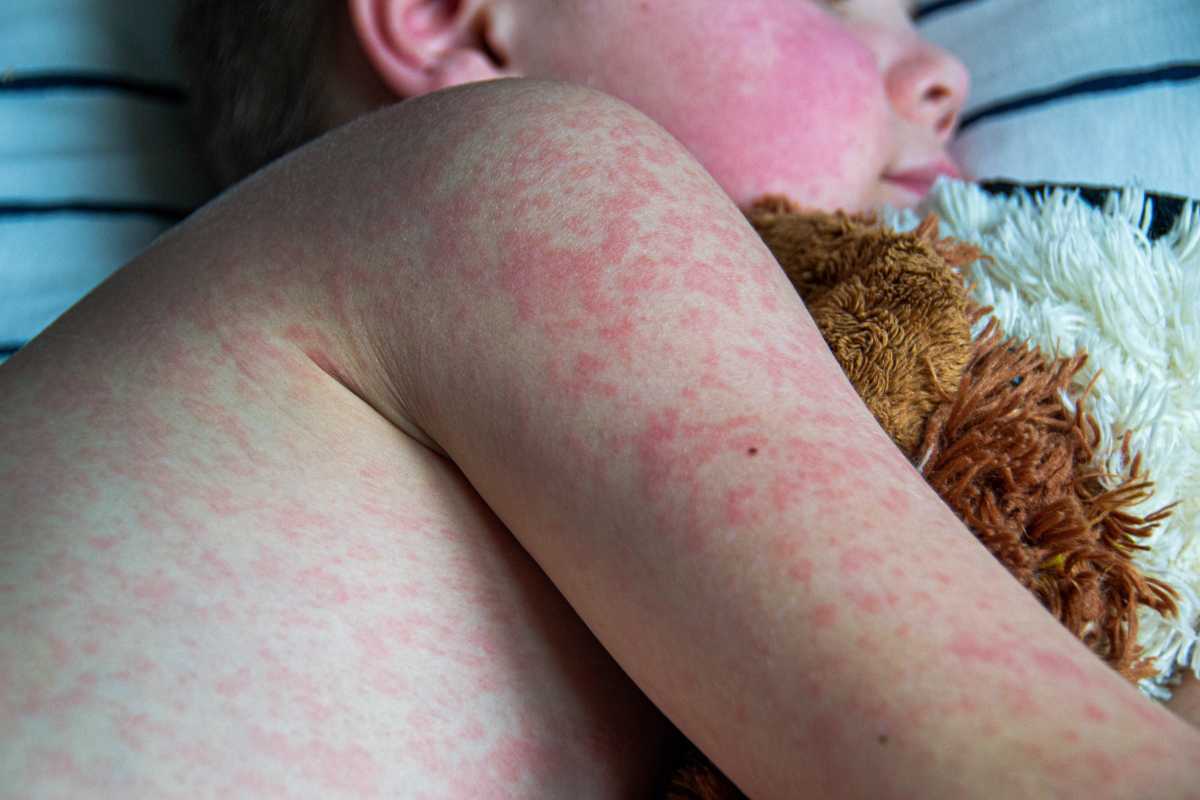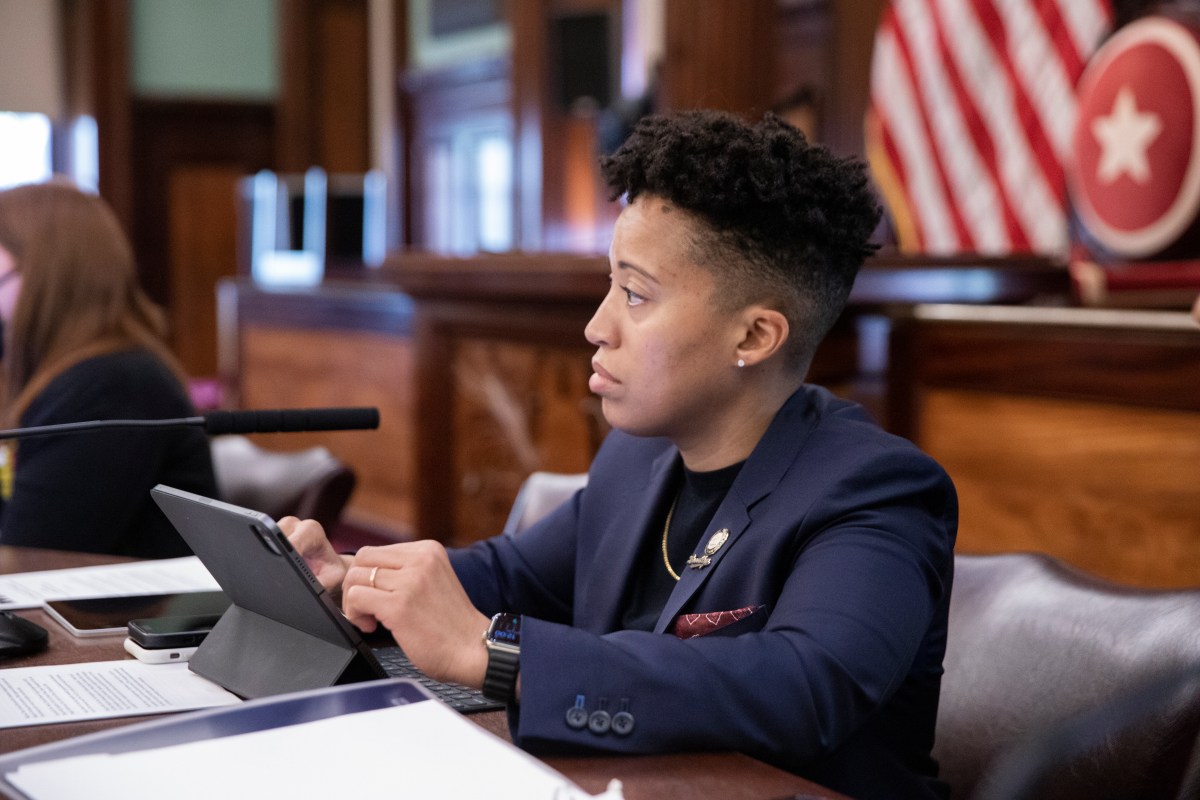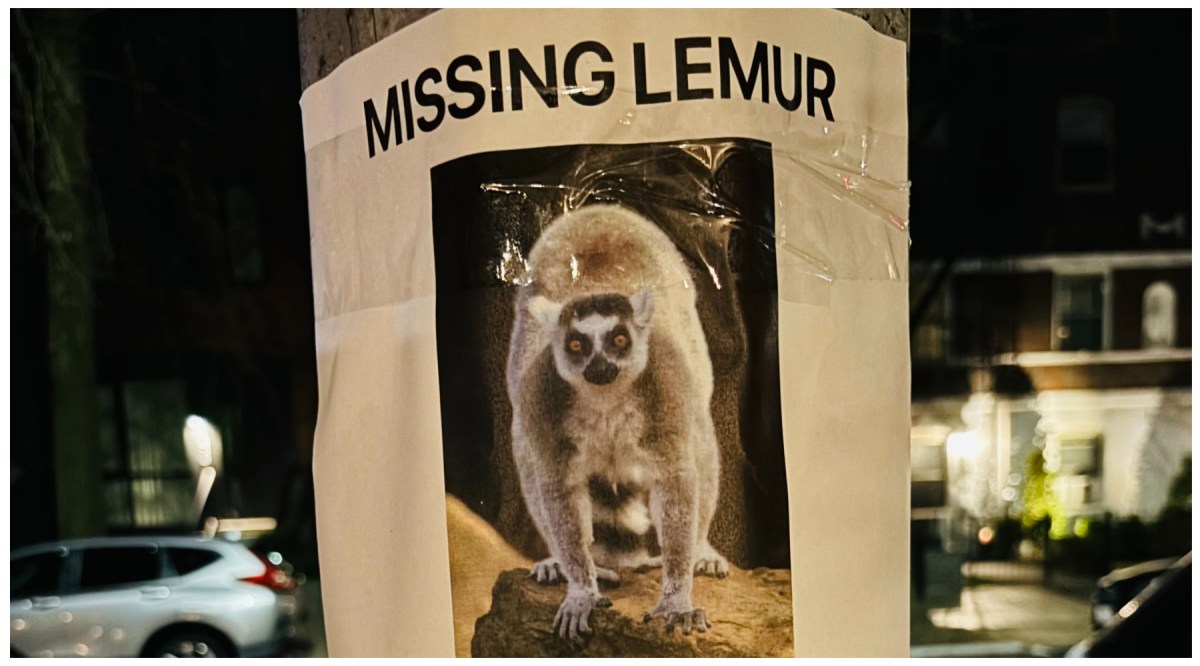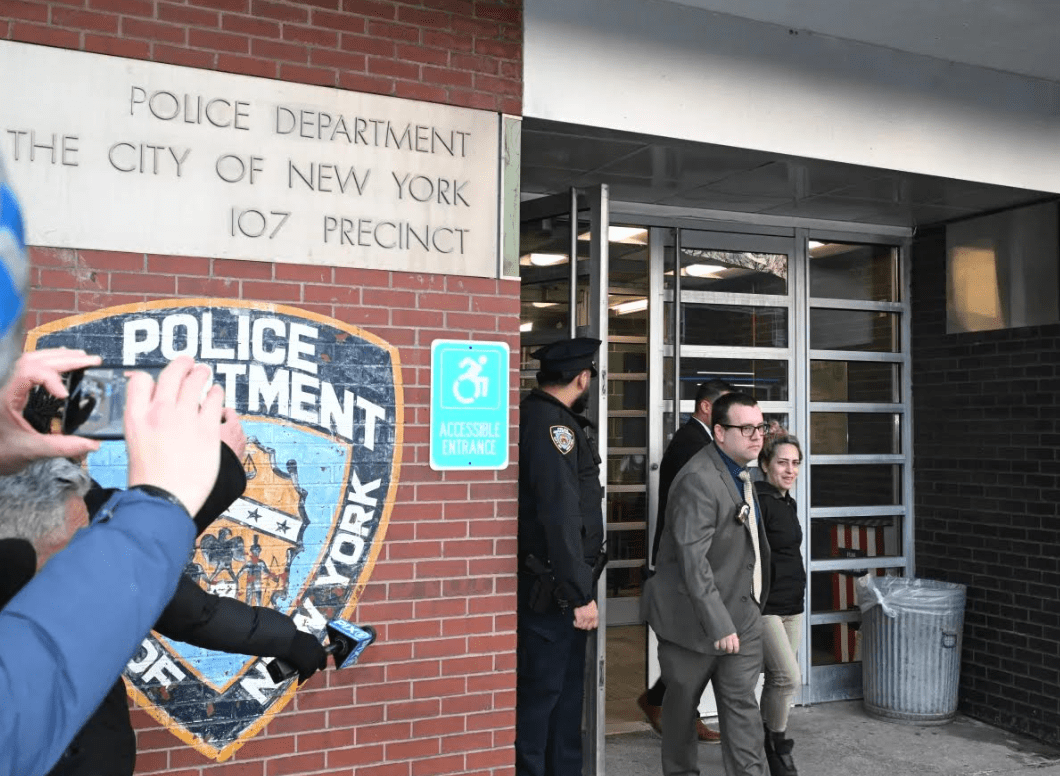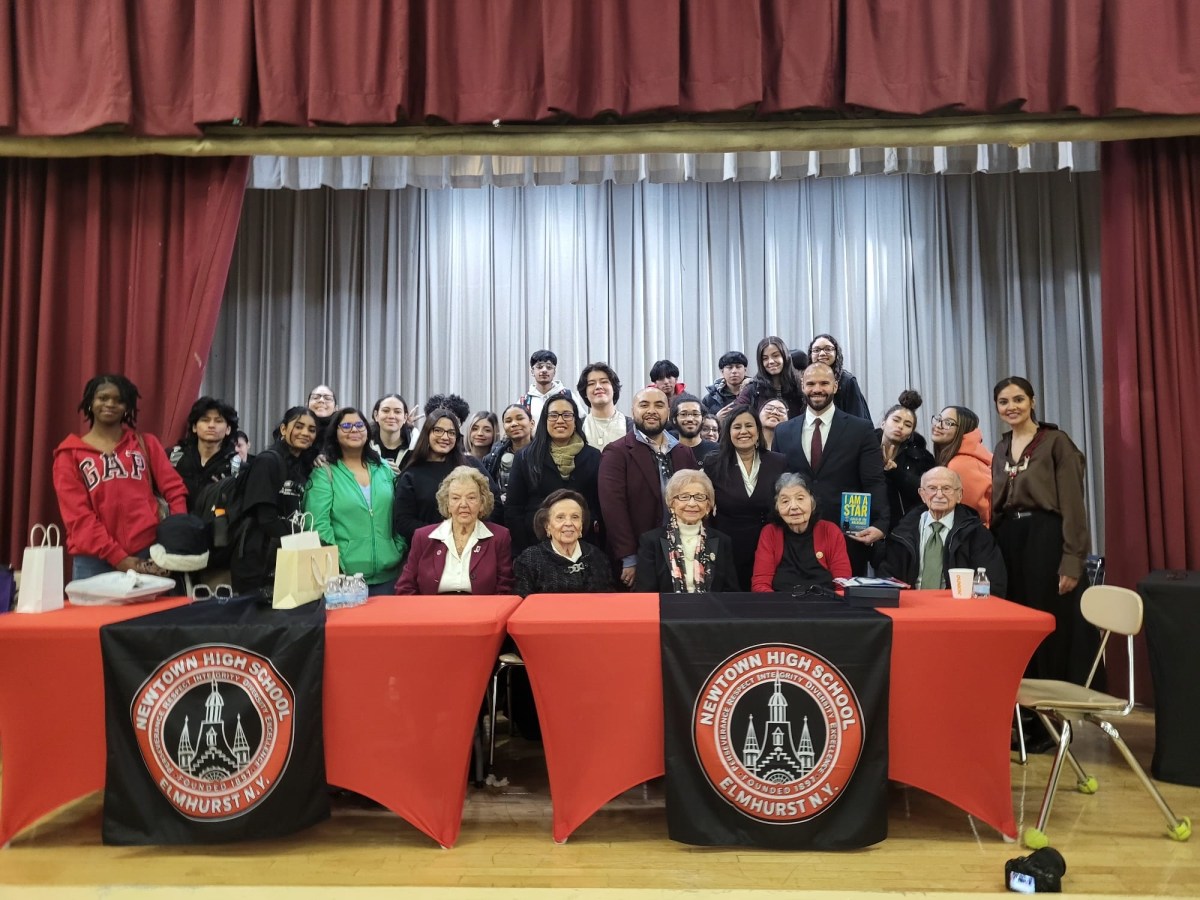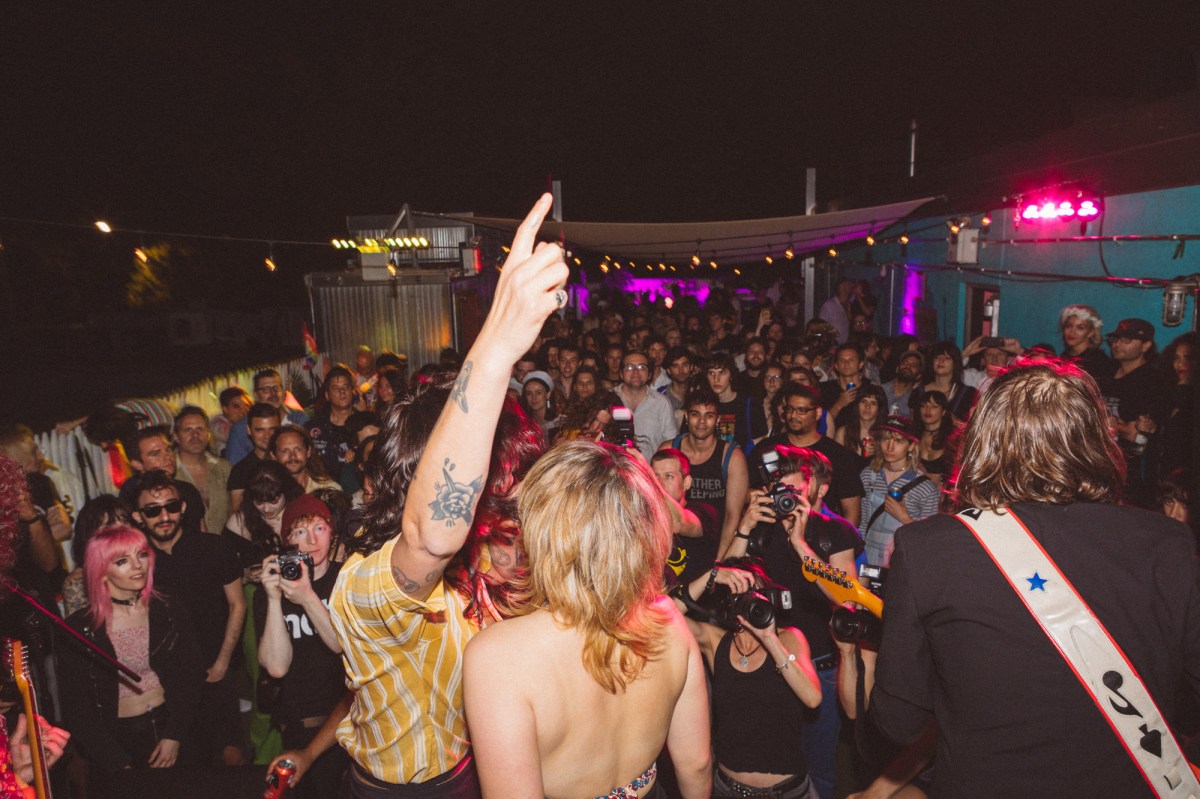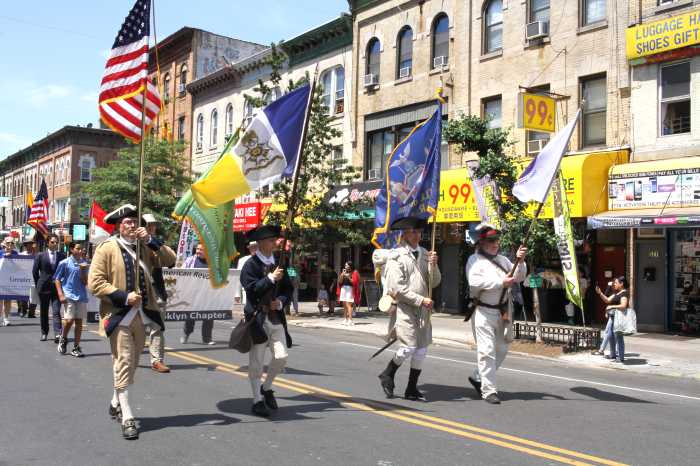Two Brooklyn migrant shelter residents have contracted measles and are undergoing treatment while the city’s Health Department works to contain the outbreak.
The agency revealed on Saturday that the infections occurred at the Hall Street Humanitarian Emergency Response and Relief Center (HERRC), located at 47 Hall St. in Clinton Hill, which opened last year to accommodate up to 1,400 adults.
The city’s Department of Health and Mental Hygiene said on July 13 that it is now “coordinating to ensure that anyone who’s been exposed gets the support and resources they need.” Both infected residents live on a single floor within the Hall Street HERRC, and the agency is concentrating on that floor to combat the spread.
“While measles may be an extremely contagious virus, the risk to the community is low as most New Yorkers are vaccinated against it,” the Health Department said in a July 13 statement. “Importantly, measles is preventable. The single best way to prevent measles is to be vaccinated. We encourage anyone who has not been vaccinated against measles to contact a health care provider to get a vaccine.”
Individuals who came in close contact with the infected residents and have not provided the city with records noting that they had been vaccinated for measles are being provided a serology test to determine if they are immune, according to the Health Department. Persons who are found not to be immune from measles will be quarantined for a 21-day period.
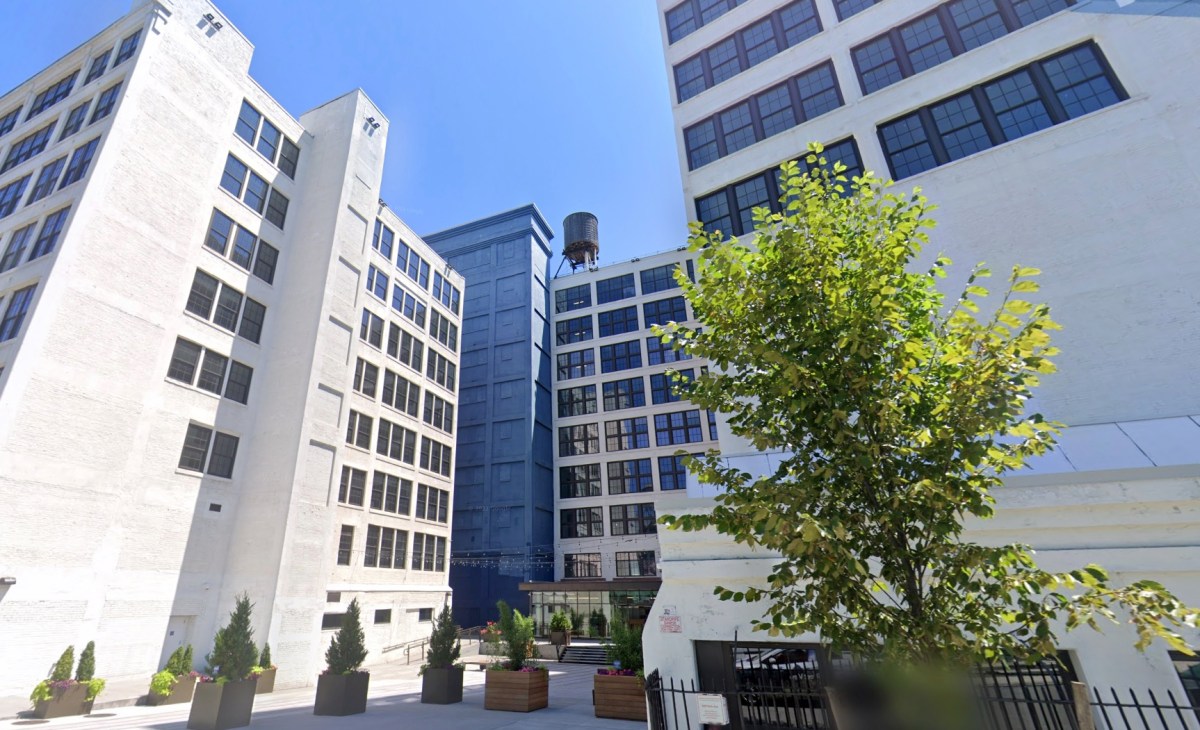
Brooklyn City Council Member Crystal Hudson, who represents the area where the Hall Street HERRC is located, expressed concern over the outbreak — and outrage that the city rebuffed her repeated requests to provide vaccines to all shelter residents there.
“In fact, our request for a vaccination van at an on-site resource fair organized by my office on June 1 was denied. For months, I have been demanding more resources for our new neighbors at Hall Street. But refusal to provide a vaccination plan, coupled with the lack of a citywide plan to right-size shelter populations and allow shelter stays beyond 30- and 60-days has led us here today,” Hudson said in a July 13 statement. “But it’s not too late to change course. Now more than ever, Mayor Adams must stand up for our new arrivals and provide them the resources, including vaccines, they desperately need.”
The Health Department notes that many immigrants are vaccinated when they arrive in America, and that most New Yorkers have already been vaccinated against measles.
A City Hall spokesperson told amNewYork Metro that all new migrant arrivals processed at the Roosevelt Hotel Arrival Center since May 2023, before being transferred to Hall Street and other HERRCs, were offered vaccines for MMR and other diseases, including varicella (chickenpox) and COVID-19. As of May of this year, more than 70,000 vaccines have been administered.
Though measles is highly contagious, vaccinated individuals have an “extremely low” chance of contracting measles, the Health Department added.
Nevertheless, in recent years, measles outbreaks have occurred around New York City. Some 500 infections occurred in Brooklyn and Queens in the spring of 2019, largely among Orthodox Jewish communities and involving children. It prompted the city to declare a health emergency, including mandated vaccinations in the areas impacted by the outbreak.
Just one measles infection had been reported, however, between 2020 and 2023 as the city grappled with the COVID-19 pandemic, the Health Department noted.
What to know about measles
Measles is highly infectious and can spread through the air whenever an infected person sneezes or coughs, according to the Health Department. The germ can remain in the air for up to two hours.
Children who receive two doses of the MMR (measles, mumps, rubella) vaccine by the age of 6 have a very high immunity to measles; with two doses, the vaccine has a 97% effective rate. The city requires that all children receive both doses of the MMR vaccine before being admitted to public schools.
Measles symptoms typically appear between 10 and 12 days after exposure to the virus, and include fever, cough, a runny nose and red, watery eyes. Within three to five days of the onset of symptoms, patients also develop a rash of red spots on the face that then spreads throughout the body.
While most measles infections run their course, there is the risk for more serious and even fatal health impacts, particularly among infants, pregnant people and the immunocompromised. A serious measles infection can lead to diarrhea, ear infections, pneumonia, encephalitis and premature birth during pregnancy.
Vaccination prevents the most serious impacts of measles. The Health Department notes that most people who receive it experience zero side effects, while in rare instances, others may experience mild fever, rash or swelling. The vaccine ingredients do not cause autism, according to the city’s Health Department.
To learn more about measles, visit nyc.gov/health.



